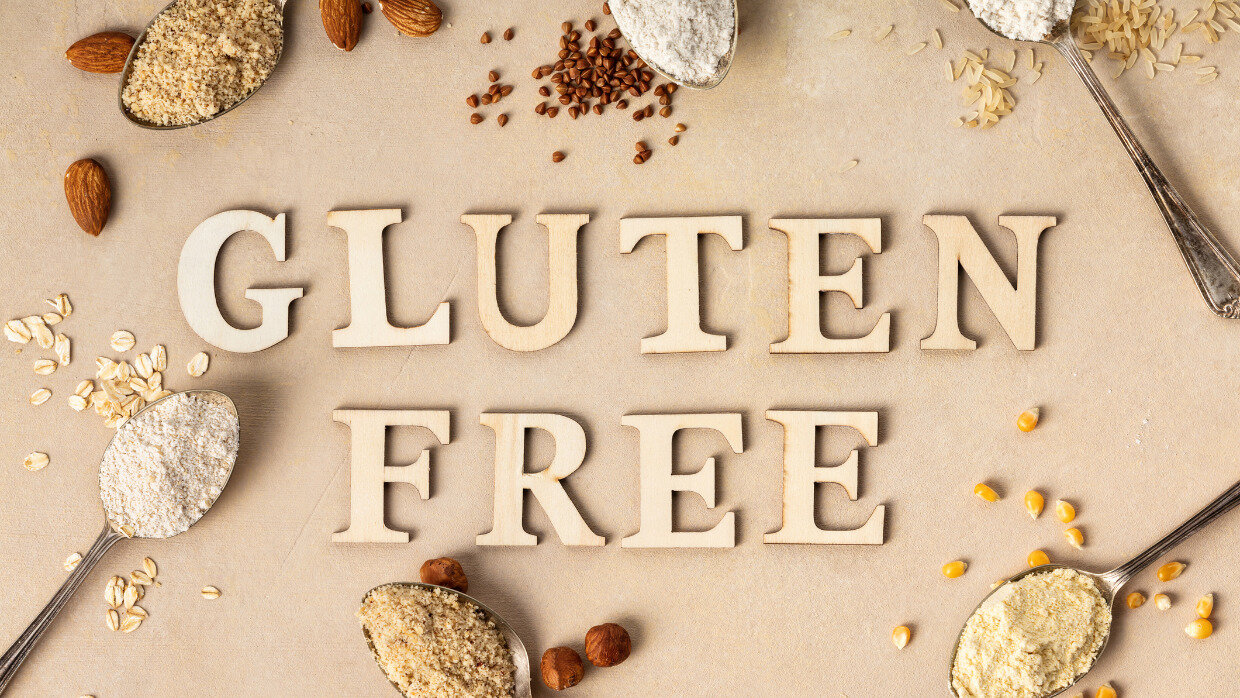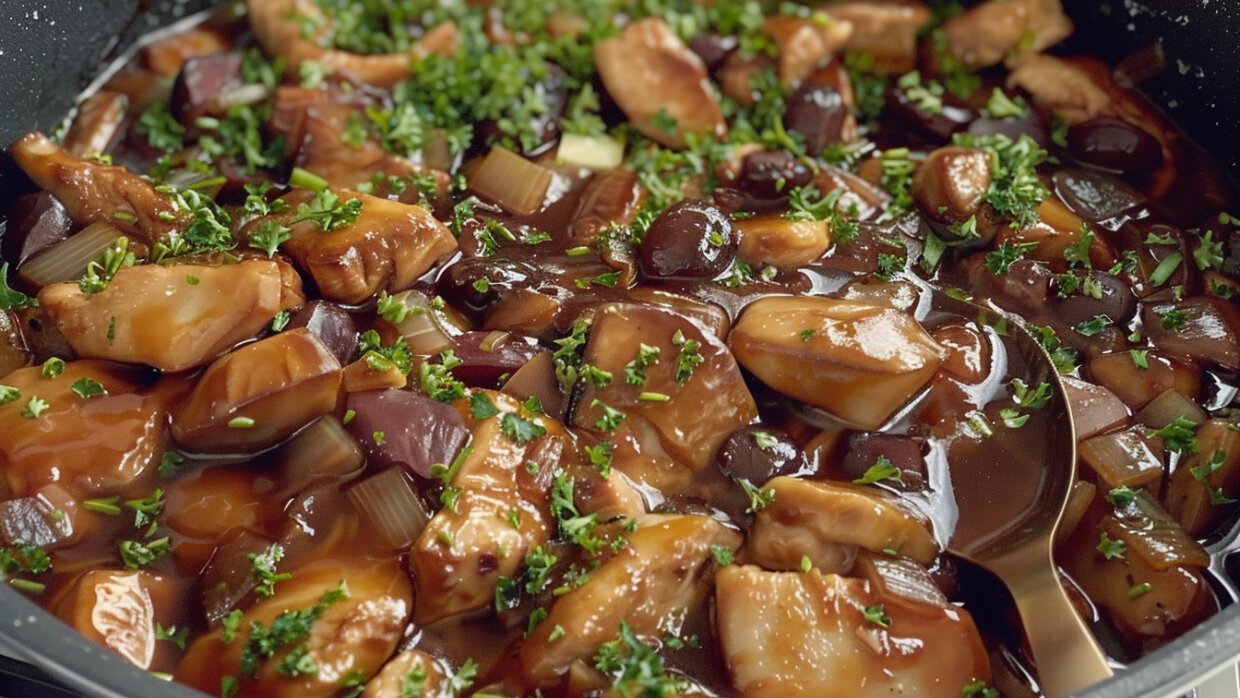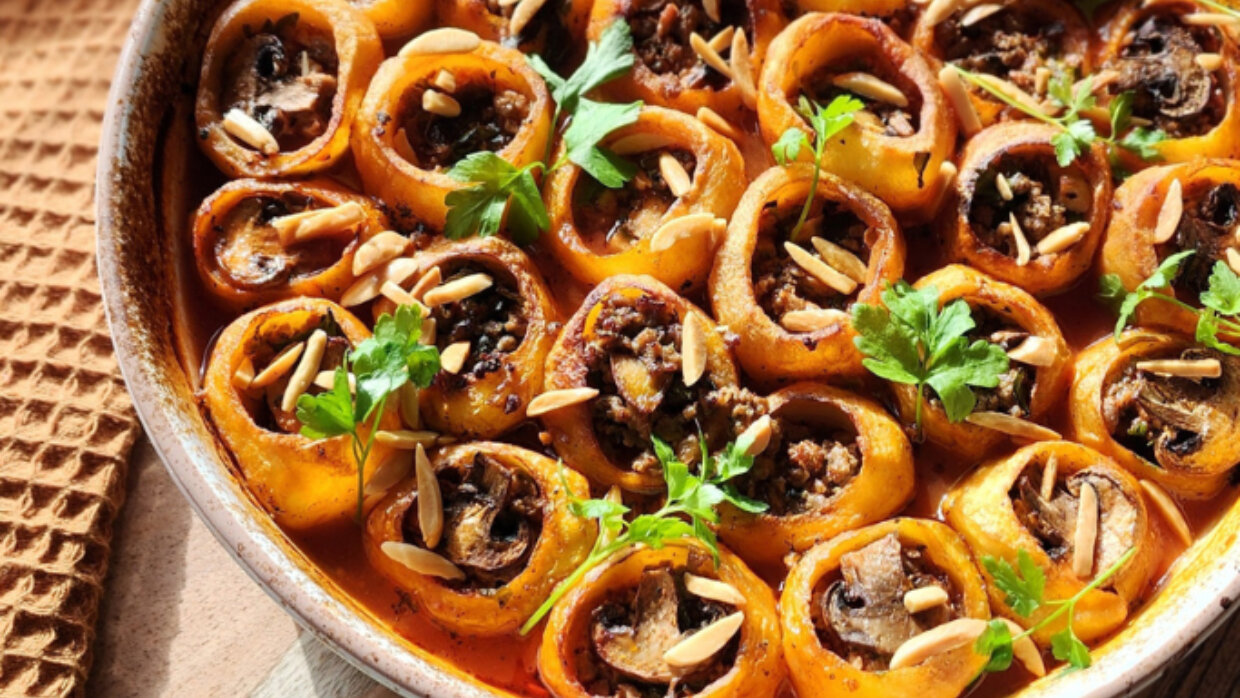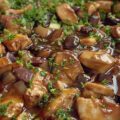Jewish holidays, as we all know, are emotional food fests. The first mouthful of bubbe’s kneidles (matzah balls) and tears well up, pride at the spread of traditional dishes and sheer joy as everyone piles their plates high.
But, how about those who suffer from food allergies or an illness with strict dietary restrictions? The ones who always feel a burden when asking hosts for special menu requests or frustration at having to restrain themselves (a lactose unfriendly Nutella topped cheesecake at Shavuot comes to mind).
The one festival on which a certain group of restricted eaters can let go of the usual dietary stress is Passover. Here the gluten sensitive and even those with celiac, a serious autoimmune disease which causes severe physical ailments from eating wheat and other grains, can for once indulge.
“It’s the perfect holiday for people who eat gluten free,” says the Israeli Foodie, aka Yehudah Jacobs, a private chef who also runs cooking workshops that can be adapted for the gluten intolerant.
Jacobs points out that everyday items are available on supermarket shelves only at this time of year in a gluten free variety as they happen to comply perfectly with Passover dietary laws. “It’s a shopping fest and stocks even run out as people bulk buy to last them for way longer than the holiday.”
The list of these items is impressive and keeps getting longer from year to year. You can pile your cart high with potato starch noodles, cereals without wheat, potato starch pizza crusts, blintzes, waffles, gluten-free couscous and more.
We all go gluten-free
As we completely clean out all the pasta, cookies, bread, cereal and other chametz (leavened foods) from our homes before Passover we probably don’t realize that we are almost ridding our diets of gluten for the next eight days, a protein which can cause havoc on our digestive systems and ailments such as rashes, headaches and fatigue.
This custom stems, as we know, from the story of Passover when the Israelites were allowed by Pharaoh to leave Egypt and in their haste did not have time to let their bread rise and so had to make do with unleavened bread (Exodus 12:14 “You shall eat nothing leavened; in all your dwelling places you shall eat unleavened bread.”) Which cuts out eating all of the highly glutinous five species of grain (wheat, oats, barley, rye and spelt).
Matzah, “the bread of affliction” which we are obligated to eat at the Passover Seder, is made from flour (or other grains) added to liquid, but is not allowed to leaven as it is baked strictly no more than 18 minutes after mixing, which prevents it from fermenting and rising. Despite this, it is still not suitable for gluten free eaters who should look out for gluten free matzah made from oats or from tapioca or potato starch.
Gebrokts or non-gebrokts?
What also fuels the high number of gluten-free options on supermarket shelves during Passover is the custom of gebrokts (Yiddish for ‘broken’). Developed among Ashkenazim, primarily Hasidic Jews, this is when all products containing matzah are strictly avoided, for the concern that it may have come into contact with liquid and leavened.
It is wise, especially for those diagnosed with Celiac, to keep in mind that a product that is Kosher for Passover does not necessarily make it gluten free, but a Non-Gebrokts label can assure it is safe to eat.
A holiday for creative cooks
Instead of looking at limitations of Passover culinary laws it’s time to be creative, even for those on restricted diets, according to the Israeli Foodie, a former New Yorker who graduated from the Jerusalem Culinary College.
For a longstanding client with a grandchild who has Celiac Disease, Jacobs has been tasked not just for making dishes adhering to eating restrictions but that will also be kid approved. “Kids are especially difficult to cook for during Passover time but I enjoy the challenge. Sometimes you even come up with something that you continue making after Passover. Potato flour has become quite trendy and chefs and bloggers have discovered that it gives a crispier result.”
His list of winners, with his own two children and those of clients, includes brownies with potato flour, mac ‘n cheese made with gluten free pasta, chicken cutlets breaded with almond meal, parfaits and meringues.
Passover also inspires making homemade versions of everyday products, he says. “I have seen those who follow the gebrokt custom even make their own ketchup and paprika.”
The gluten free trend
The amount of people asking for gluten free items has grown substantially over the years, says Jacobs. “It’s not only those with celiac these days but also people who are on high protein diets or just feel better when not eating gluten based items. Gluten and sugar go hand in hand and send the insulin levels sky high,” says Jacobs who himself has struggled with weight all his life and has managed to reduce from 174 to a trim 74 kg (383 to 163 lbs).
Sarit Herzman-Harari, who has an MSc degree in Nutrition from Hebrew University, says that although Passover is a “blessing to those who are gluten intolerant it’s also good to be wary of buying too many products which are unhealthy even if they have the gluten-free label.”
She cautions that many of these foods are still unhealthy as they contain very high amounts of commercial and saturated fats and are laden with sugar, calories, and other undesirable ingredients.
Luckily, Herzman-Harari says, celiac disease is not very widespread and affects less than 10 percent of the population in Israel. Her advice is to “not overstock on the cornflakes and other processed products just because they are gluten free. Eat in moderation and enjoy the tasty traditional Passover foods.”

















